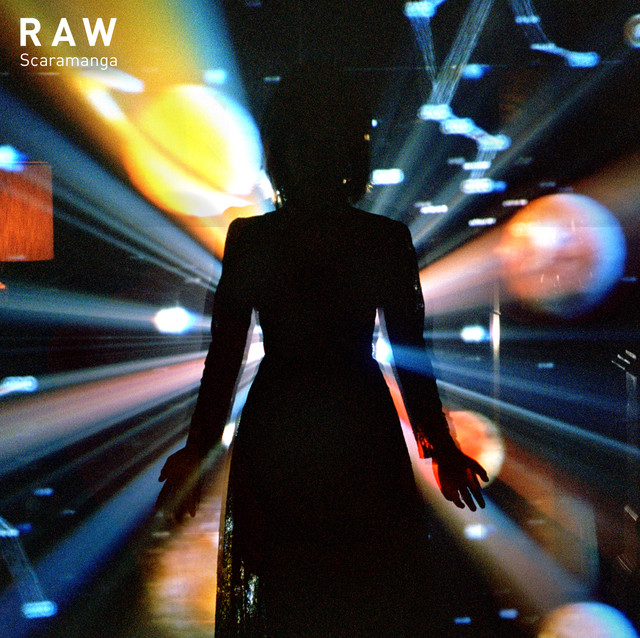Successful modern Japanese music has often been dominated by cute manufactured girl groups with interchangable members (AKB48, Morning Musume) and mimics of American heavy rock (One OK Rock, The Oral Cigarettes), Hiroko Sebu is an already-established musician and composer in Japanese music that regularly breaks that cyclical mould by not sounding stereotypically Japanese, both vocally and musically.
For starters the Shiga-ken native, now Tokyo-resident’s latest record Raw Scaramanga is a multilingual piece of work with songs in French, English, as well as her mother tongue of Japanese. The fact that four songs are in French is highly significant. The erudite Hiroko Sebu studied music in the French capital at the highly-regarded École Normale de Musique de Paris and was motivated to compose music after falling in love with the soundtracks of Gabriel Yared – most famous for his music for the tragedy film Betty Blue and collaboration on Anthony Minghella movies.
Hiroko Sebu is also something of a prodigy, having written scores since the age of five and the now 35-year-old has composed the soundtracks for many Japanese movies and television shows including recently the drama novel adaptation Ikiteru Dakede Ai and NHK TV Series Beppinsan.
With this knowledge in mind, it’s unsurprising that her latest work Raw Scaramanga is an intelligent, captivating extravaganza of dramatic, orchestral and shape shifting music. It combines her wonderfully versatile piano skills that she’s used well in soundtrack creation, with the energetic off-beat jazz drumming of Chris Dave (the celebrated drummer who has worked with Adele and Anderson Paak has also worked with other Japanese musicians Hikari Utada and Nariaki Obukuro recently), enthralling violins/cellos and a satisfying celestial electronic production.
The first four tracks of Raw Scaramanga are very exciting and invigorating. The English-language opener, the symphonic rock ‘Vega’, named after one of the brightest stars in the solar system and the first star to be photographed, is a theatrical song that appears to document the thoughts of an transfixed astronaut: “Into the sky, Ignitition, stand-by. I feel my levels rise.”/”I face humankind. Oh what was their trait. Oh what they’ve left behind”. The 6-and-a-half minute song might be about space travel but its music feels religious, with its ecclesiastical organ, sharp cello and harpsichord, albeit with effective phasing techniques to make it sound mystical.
This is followed by ‘Do One Thing Every Day That Scares You’. The title perhaps sums up Hiroko Sebu’s brave mentality towards her career and the music within showcases her courage at creating mood-based compositions with minimal lyrics – there’s only one line in the track and that’s repeated over and over. The track is dominated by rapid drumming and sparkling synthesizers.
Like the previous song, the third track ‘Gardien’ grows more intense as it goes along. It favours a house beat and 1990’s techno loops, as Hiroko Sebu seems to sing in French about being a football goalkeeper. Perhaps it’s metaphorical.
Despite ‘Secrets’ being the first time she sings in Japanese and containing some delicate Asian string-plucking, her vocal style has a Scandinavian pronunciation to it, similar to Icelanders Mammút. It also uniquely combines a dream rock vibe with bluesy keyboard, one of many times that she crosses genres.
After such an impressive start, the simplistic piano solos ‘Skirt’ and ‘Bradford’ disturb the energetic flow of the record but display a measure of Sebu’s unfiltered piano performance. The French-language Bradford feels nostalgic and springs to mind the music of the Sims game or classic American TV shows.
The album’s pacey excitement picks up again in the last chapter. The accelerated piano and Chris Dave drum jamming in the hurried dinner jazz track ‘John Doe’ is a delight. The piano’s pace and once again Scandinavian style accent makes the track about identity reminiscent of underrated Finnish act Astrid Swan‘s quirky 2008 album Spartan Picnic.
This is followed by the thick-French accented ‘Movie Palace’. Perhaps the album’s best track. Hiroko Sebu demonstrates her love of cinema, beautifully describing a sophisticated time when cinemas had crystal chandeliers and people watched Fred Astaire in velvet armchairs and dressed in suede jackets. The lyrics along with its downtempo tropical-electronica atmosphere feel rather magical.
If ‘Movie Palace’ imagines Hiroko Sebu as a little girl staring at the screen in awe at her first experience of movie music, the preceding track, the beautifully minimal string-piano piece ‘1/5000′, showcases the composer at the current stage of her life because it features on the 2018 emotional film Love At Least.
Raw Scaramanga ends with Ladytron-sounding new wave track ‘The Death of Indifference’. Political lyrics that are in both French and Japanese are accompanied by a sparkling dreamy blend of synthesizers, heavenly organ and elevating high frequency sounds. It’s a fitting end to an eclectic, galvanising record from a courageous composer and shows that Japanese music can have many dimensions.




